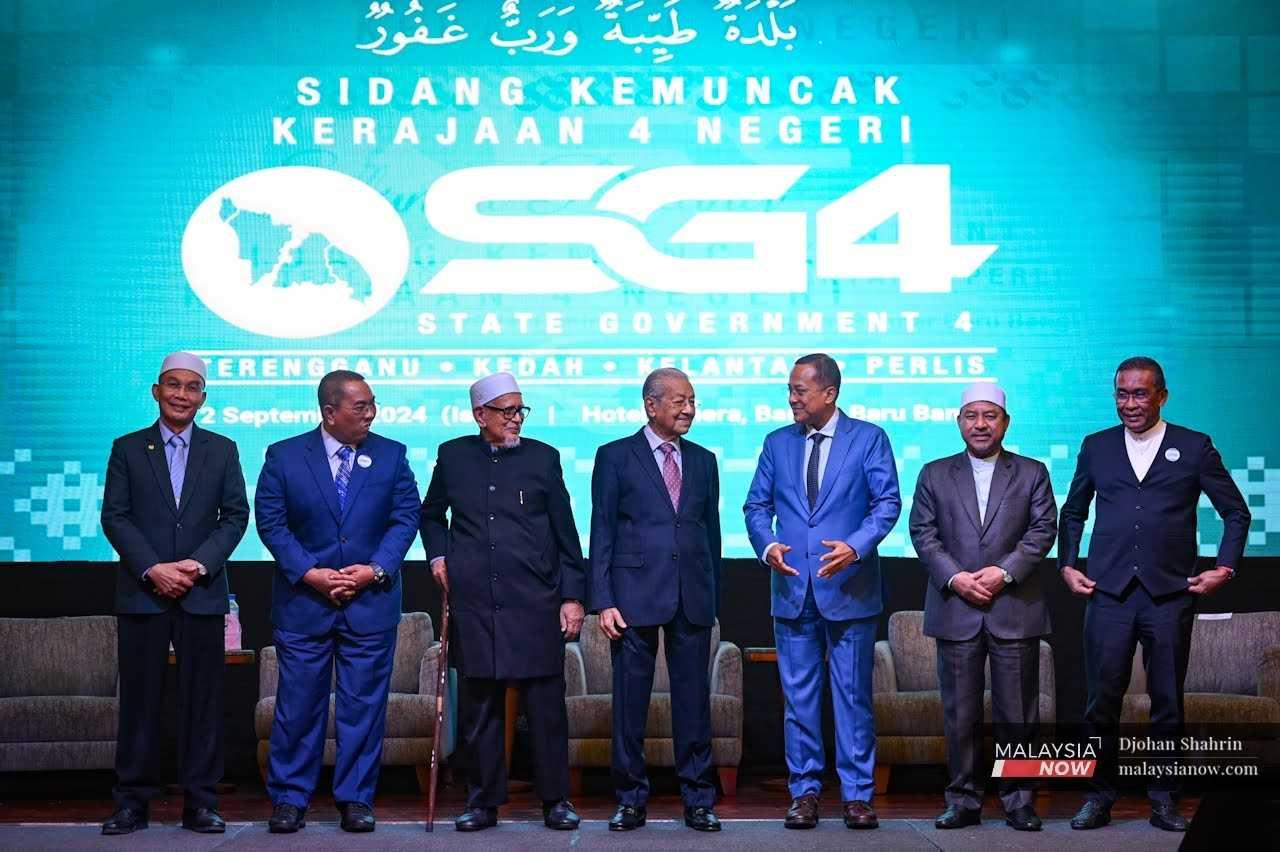SG4 set to be Malaysia's next big thing as states come together to boost growth
Experts hail the formation of a company by four opposition state governments as a game changer, but hurdles remain.
Just In
Long considered poor and backward, four opposition-ruled states are now set to see economic major transformation with the formation of a new entity to manage their rich resources, experts say following the recent announcement by state governments of Perlis, Kedah, Kelantan and Terengganu who are collectively known as State Government 4 (SG4).
They see the states, which cover much of the northern and east coast regions and are home to about a fifth of Malaysia's population, in a strategically favourable position to become major economic players under a new partnership which is already seen as groundbreaking.
Earlier this month, leaders of SG4 announced the formation of SG4 Group Sdn Bhd, a company to share and distribute wealth equally among the states, at a major meeting attended by its adviser former prime minister Dr Mahathir Mohamad, the man widely credited with the transformation of the country from an economic backwater to one of Asia’s leading economies.
The company is centred on efforts to attract investment to the states and harness their vast deposits of rare earth elements (REE) and agricultural land for food production and the development of the green energy industry.
The company will focus on five major clusters: infrastructure and logistics; trade, investment and industry; agriculture and food security, education and human capital and new sources of income.
So far, South Korea, Japan and China have shown interest, said Terengganu Menteri Besar

.
He said SG4 could provide larger industrial zones and more cost-effective options as development in many states on the west coast is almost saturated.
Economist Ahamed Kameel Mydin Mira said SG4 could be a game changer for prosperity in these states.
He pointed to the agricultural strength of Perlis, Kedah and Kelantan, as well as the oil wealth of Terengganu and the industrial zones of Kedah.
"So what the states should do is first to take stock of all the natural resource potentials they have and then plan their economic development from that base," he told MalaysiaNow.
Ahamed Kameel expressed confidence that agriculture will develop into a profitable economic sector if it is managed systematically.
To achieve this, however, the states would have to remove all bureaucratic hurdles and obstacles, especially those related to state and federal agencies.
"They should focus on improving productivity through advanced technologies such as the Internet of Things and artificial intelligence in farming," he said, addressing a problem often cited by economists in relation to Malaysia's food security.
Malaysia currently imports RM70 billion worth of food, including vegetables, fruits and livestock.
"The education, training, and capacity building must revolve around these so that the right talents are cultivated within the states," Ahamed Kameel said, referring to a decades-long trend of people migrating from the four states to the west coast to find jobs.
He said SG4 needs to develop the upstream and downstream industries, adding that Terengganu can lead in the development of petroleum-based industries such as lubricants, fertilisers and pharmaceuticals.
Researcher Adilah Zafirah Mohd Suberi said there was nothing to stop the four states from overtaking the more advanced states with their vast natural and human resources.

She said it was unfortunate that after decades of independence, the New Economic Policy and various economic corridors to boost growth, there was still a huge development gap.
"It is the weakness of the federal government to balance the development of the country as well as the political instability that has prompted the opposition states to embark on an initiative like SG4," she added.
Doris Liew of think tank IDEAS Malaysia agreed that SG4 offered a promising opportunity but that important questions remained unanswered.
"While the state government can gazette lands for priority industries, the federal government retains control over crucial investment incentives like tax breaks and grants.
"This dual jurisdiction could complicate the company's ability to attract investors," she said.
Liew also questioned SG4 Group Sdn Bhd's initial capital and said the states had limited options to deal with its resources, unlike the federal government which can allocate part of its budget to sovereign wealth funds.
She said SG4's success would depend on careful planning, strategic partnerships and effective coordination between the federaland state governments.
"More detailed information regarding the company's structure, funding sources,and specific investment strategies will be necessary to assess its full potential," she said.
In this sense, Adilah said a strong national will is needed to put party politics aside in order to develop the region.
"We have not achieved national unity. Rather, polarisation has deepened," she said.
Subscribe to our newsletter
To be updated with all the latest news and analyses daily.
